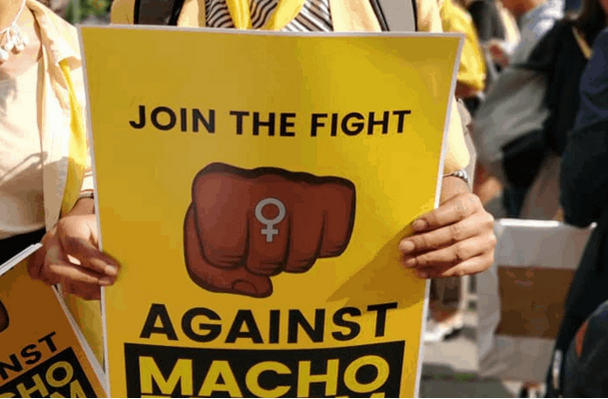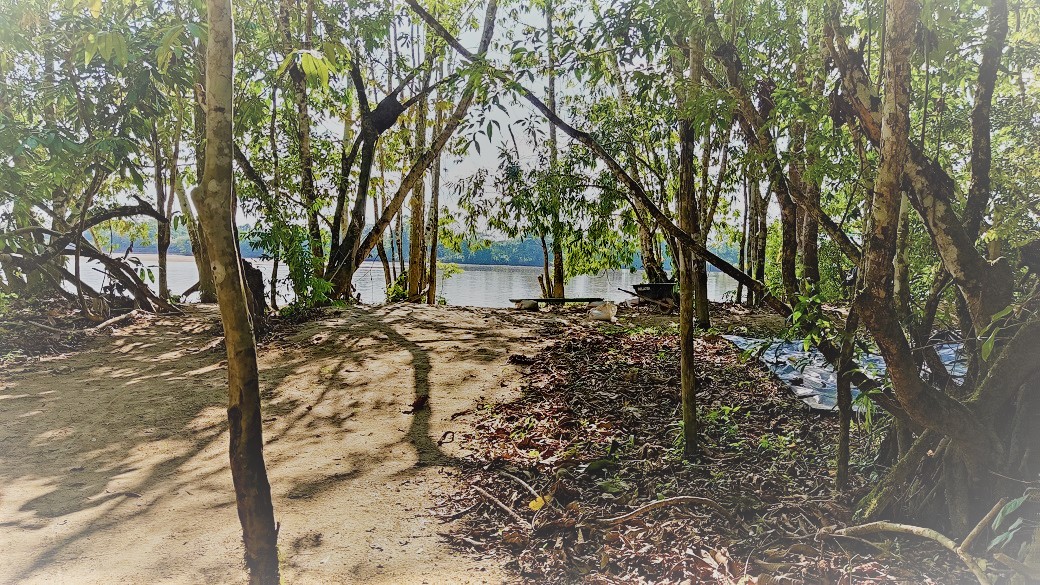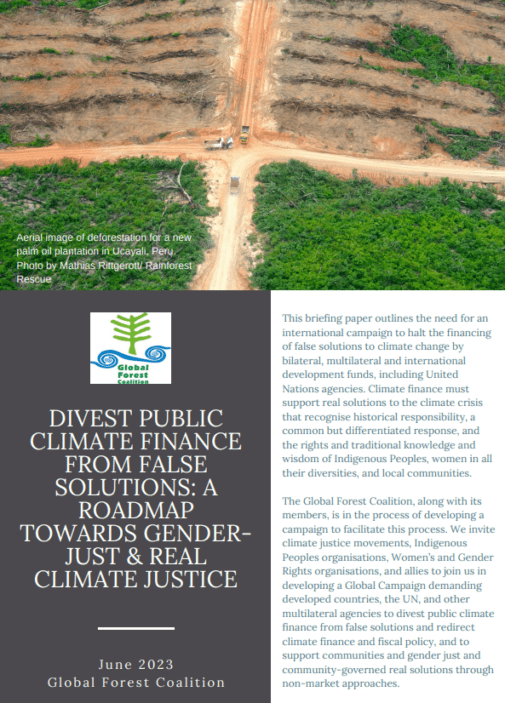La historia de Jeanette Sequeira en el Día Internacional de los Bosques

Hoy es 21 de marzo, Día Internacional de los Bosques. Es un día importante para Jeanette Sequeira, coordinadora de la campaña de Justicia de Género y Bosques de la Coalición Mundial por los Bosques y activista de Fossil Free Feminists (Feministas sin Fósiles).
Este artículo fue publicado originalmente en wecf.org
#HerstoryofChange
Como una red ecofeminista, queremos dar espacio a las historias de campeones inspiradores en el ámbito de la igualdad de género y la lucha contra el cambio climático y la contaminación ambiental. Creemos que un futuro y un medio ambiente sostenibles requieren soluciones feministas que reflejen la vida de las personas sobre el terreno. Por eso trabajamos por la igualdad de género transformadora y los derechos humanos de las mujeres en conexión con el desarrollo sostenible y la justicia climática.
Jeanette trabaja en la Coalición Mundial por los Bosques, una coalición internacional de más de 100 organizaciones de base, de pueblos Indígenas y de derechos de las mujeres, centrada en políticas forestales con justicia social. Ella se enfoca en abogar por la integración de los derechos de las mujeres y los análisis y perspectivas feministas.
continuar leyendo en inglés…
International Day of Forests
Forests, which cover about 31% of the world’s land are vital for regulating and stabilizing the climate, that’s why this day is so important according to Jeanette. About 1.6 billion people depend on forests for their livelihoods and so the respect for the rights of forest-dependent communities is central. On this day, we want to draw attention to the fact that despite how important forests are they are still under severe threat. Across the world they are being destroyed by extractive activities and false solutions that are even being promoted by climate and environmental policies. Take for example the destructive role of big biomass burning or bioenergy which is linked to deforestation, air pollution, land grabbing and human rights violation. Industries like this are also responsible for promoting commercial monoculture tree plantations.
![]()
(copyright picture: GFC)
Another false solution we are seeing everywhere is carbon offsets and carbon markets. These have been established to allow rich countries and companies to keep polluting while offsetting their pollution through investing in so called forest projects (read more about this here). This forest loss worsens all forms of existing inequalities, including gender inequality, and creates new ones. At the same time women in all their diversities and self-organized and autonomous community and women’s groups are at the forefront of the resistance against extractive activities and promotion of inclusive forest governance. Their forest conservation initiatives prioritize unique traditional knowledge and the building of alternatives for a heathy planet.
Jeanette’s work for Global Forest Coalition brings change and difference to people’s lives. One example of incredible collective action, she wants to highlights, is a self-managed and self-organised women’s collective that manage land communally and produce food.
In that way, they address issues of food insecurity, biodiversity loss and commercial monocultures. They come up with solutions such as agroforestry initiatives and exchanges of seeds and skills, and use of traditional knowledge. Another example from Kenya are Indigenous women’s groups that organise skill shares amongst each other on influencing local county development agendas; they want community land rights that benefit indigenous peoples and women. It’s so important to amplify these solutions and alternatives. Another success she’d like to mention is the Marfrig case. GFC is part of the Divest Factory Farming Campaign and this one of our latest successes. A bank dropped an investment in a harmful extractive company Marfig. See the link for the press release.
Ecofeminism
Apart from her work for Global Forest Coalition Jeanette is also an outspoken ecofeminist. She states that an ecofeminist approach in her work is critical. “Ecofeminism helps me understand the structural barriers that communities are facing, how extractive industries and activities are supported by an unjust capitalist system that is rooted in patriarchy. So for me, ecofeminism means striving for equal rights and for environmental and gender justice. In our work we look not only at the gender-differentiated impacts of deforestation but also the different policies and false solutions that are being proposed and how women’s rights are affected by them. Such as with extractives companies that are responsible for land grabbing and how this relates to for example gender-based violence. It’s also crucial for the environment and climate that we have womxn in leadership and strive for gender justice”.
“I think an ecofeminist approach calls for feminist and environmental justice movements to work together to make sure we integrate gender justice in environmental policies, as we move towards greater systemic change.”
An ecofeminist future, is, to her, more collective action, a different economic system and the question of how can we move to a better balance of power in decision making. Ensuring more women’s voices are heard at every level, from municipal to the UN and that ultimately our democratic and economic systems are based on people’s needs and not the pursuit of profit.
“My own ecofeminist power is organizing and convening at the international level and amplifying community- and women-led solutions. I want to contribute to as much of an inclusive and intersectional feminist movement as possible and we need all voices, those working on LBGTQI+ rights or in anti-racism, to be heard across our movements.”
Fossil Free Feminists
Next to here work at Global Forest Coalition Jeannette is also dedicating her time as an activist to the Fossil Free Feminists, a small collective of feminists who have come together to deepen their own and others’ understanding of the climate crisis from a feminist perspectives and how climate breakdown deepens social, gender, racial and economic inequalities.
![]()
March 5th, Jeanette was asked to speech at the Women’s March Nederland as Fossil Free Feminist on Dam Square in Amsterdam.
“It was an immense privilege to be invited to speak at the Women’s March Nederland 2022. We shared our analysis on the gender impacts of the climate crisis but also the role of colonial histories, environmental racism and the devastation of indigenous peoples’ territories in the crisis. A big part of the speech was cautioning the crowd not be fooled by greenwashing including from fossil fuel and other extractive (even renewable energy) industries, which tell us they’ll aim for so-called ‘net-zero’ emissions in 2050 (just another false solution!). The fact is we don’t have that time and ‘net’ anything actually enables new forms of profitable extractivism”.
“We highlighted that we want a transition to a new social and economic model that is generative and redistributive. Working with people like care workers and land defenders are necessary to achieve this“.
Jeanette’s speech is available on You tube by Women’s March Nederland from 1:12:56







